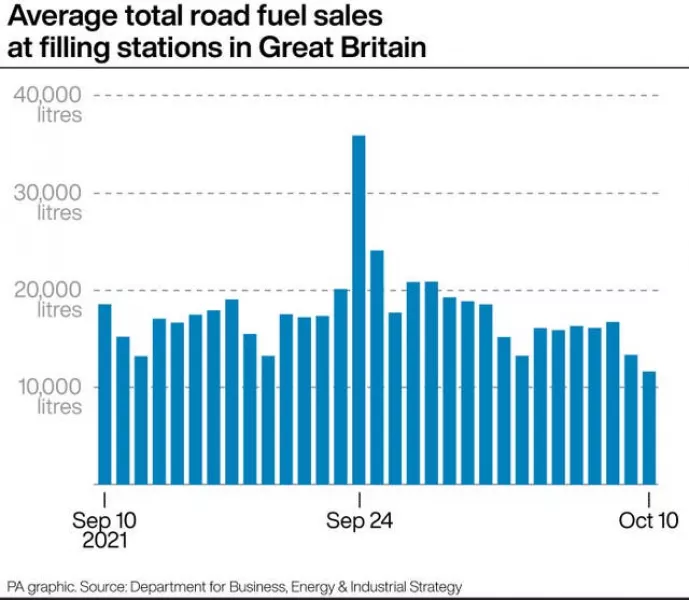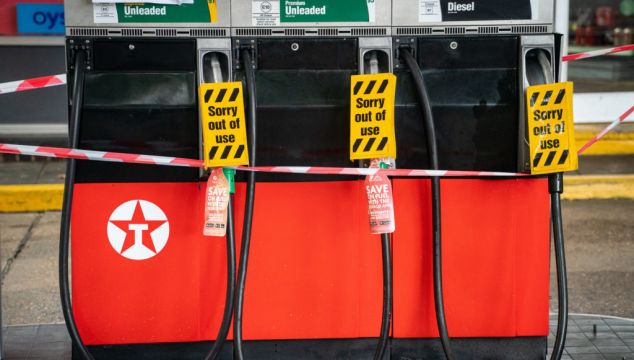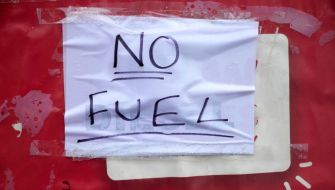Fuel supplies at petrol stations in London and the South East remain lower than the rest of Britain.
Figures from the UK Department for Business, Energy and Industrial Strategy show filling station storage tanks in the country's capital were just 27 per cent full at the end of the day on Sunday, compared with 37 per cent across the whole of Britain.
The situation was only slightly better in the South East (33 per cent).
Average stock levels in Britain sank to 15 per cent on September 25th, two days after panic buying began.

In early 2020 – before demand was affected by coronavirus restrictions – stock levels averaged around 43 per cent.
The figures also show that sales of fuel have slowed from an average of 35,900 litres per filling station on September 24 to 11,600 litres on Sunday.
Luke Bosdet, the AA’s fuel price spokesman, said the statistics indicate that the crisis lasted for 17 days, and it was not until Sunday when “normality” returned.
He went on: “The persistence of that road fuel frenzy has been a surprise, and it will be necessary to re-plan future responses to such events, taking into account the immediate impact of messaging and social media when a forecourt gets resupplied and whether spend limits are adequate when the cost of fuel is so high.
“It was clear that, as soon as a fuel station had a delivery, the world and his wife descended on it to top up.
“Also, at around 136p a litre, a £30-limit on fuel sales bought only 22 litres of petrol in a typical 55-litre tank.”







